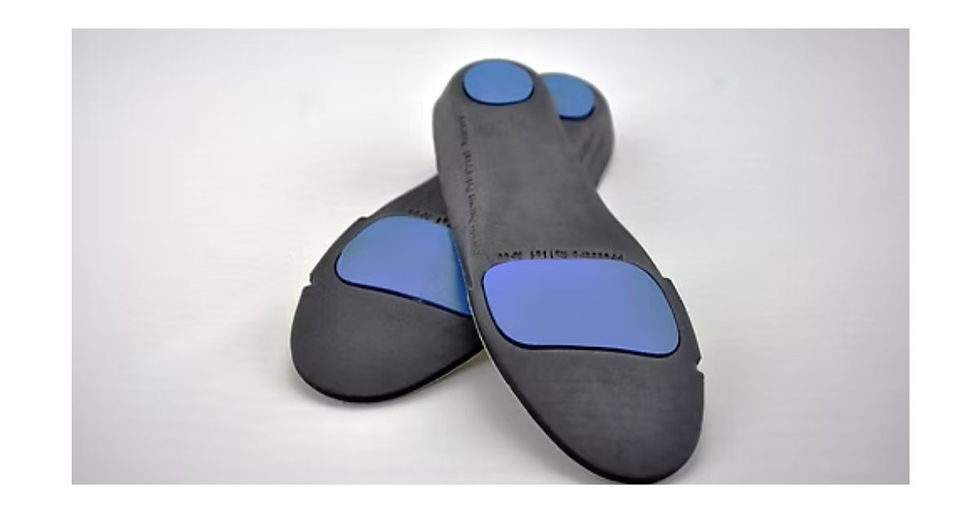Prosthetic Arm: All You Need To Know About It
- Lifeforce Hub Singapore

- Oct 3, 2022
- 3 min read
Updated: Sep 26, 2024

The arm is an essential part of your body. You reach out to things with it, you touch with it, and you feel with it. However, with the developments of science, we are now able to get an artificial arm that works, not exactly but similar to your arm.
Here is everything you might want to know about an artificial arm.
What Is A Prosthetic Arm?
A prosthetic limb or arm is an artificial arm designed and made to fulfil an amputee’s need for an arm. Although researchers are trying hard to make it feel like an arm, these artificial arms are good for fulfilling amputee’s needs.
Types Of Prosthetic Arm (Functional Prosthesis)
Prosthetic arm has two types, transradial and transhumeral. The transradial prosthetic arm is for amputations below the elbow. Meanwhile, transhumeral prosthetics are for the arm which was amputatedabove the elbow.
Because incorporating elbow movements in the transhumeral arm, it is considered the most difficult type of prosthetic to be installed. That is why it is advised to consult only the expert prosthetist for an artificial leg or arm.
How Does It Work?
There are three different working methods of an artificial arm namely, body, motor, and myoelectric.
1. Body Powered Artificial Arm
The body-powered prosthetic is designed such that the movement of the artificial limb depends upon other body parts. In prosthetic arms, the artificial arm is attached with cables to the other shoulder and the movement of the prosthetic depends on the other shoulder. The user will have to move the other shoulder for lifting or moving their artificial hand. This type of artificial arm is the least expensive of the other types.
2. Motor Powered Prosthetic
The motor-powered prosthetic hand incorporates switches and buttons to operate the artificial arm. If the imputed hand has some working muscles left, the movement of the artificial arm will depend on them. However, if there are no working muscles, the buttons and switches are operated with the other arm. It requires a great amount of practice to control such artificial arms.
3. Myoelectric Powered Arm
The myoelectric-powered prosthetic arm is the most sophisticated development. It uses signals from the residual arm to operate the artificial arm. A number of electrodes are installed at the end of the residual arm which transform the signals from the muscles and send signals to the artificial arm for the appropriate movement. It is the most successful method of powering an artificial arm and the most expensive as well.
Things To Consider Before Getting a Prosthetic Limb
Getting a prosthetic leg or arm is a big decision and you should go about it several times to be sure. There are many things you must consider before going for a prosthetic. Here are some of the factors you must consider:
What mobility levels do you expect to achieve?
How physically active you were before the amputations?
Do you have enough soft tissues in your residual arm to provide a cushion for the remaining bone?
What is the condition of your residual arm? Is it good for prosthetics?
What is the mobility level of your residual arm?
Is your other arm completely healthy?
All these factors are immensely important, and you must find the answer to these questions first before going for the prosthetics. Always consult your doctor and expert prosthesis for guidance on the big decision.
What To Expect While Getting a Prosthetic Limb
Getting a prosthetic limb is a long and painful journey. Firstly, the doctors andprosthetist will analyze your residual limb and the skin around it. They will check if the muscles and tissues are in good condition to support the prosthetic limb. And if the need arises, you may also be required to undergo surgery to make your residual limp ready for the prosthesis.
Secondly, the prosthetist will put a cast on your residual arm to get the exact measurements for the prosthesis after stump management. Next, is to make sure that the prosthetic limb is a perfect fit for your arm.
After the prosthesis is ready, you will have to go through a rehabilitation process to get used to the new arm. There will be several physiotherapy sessions to help you get accustomed to prosthetics and also to make you learn the use them.
How We Can Help?
Lifeforce Limb & Rehab Pte Ltd is a leading prosthesis and rehabilitation center in Singapore. With over 25 years of experience in the field, our chief Prosthetist and orthotist make sure to provide you with high-quality products and care that will make your life easy and independent. We also provide rehabilitation services to get you accustomed to artificial limbs.
Whether you need an artificial finger or artificial arm, Lifeforce Limb & Rehab Pte Ltd is the place to be!!




Comments